
Find Help
More Items From Ergsy search
-

Is IVF successful?
Relevance: 100%
-
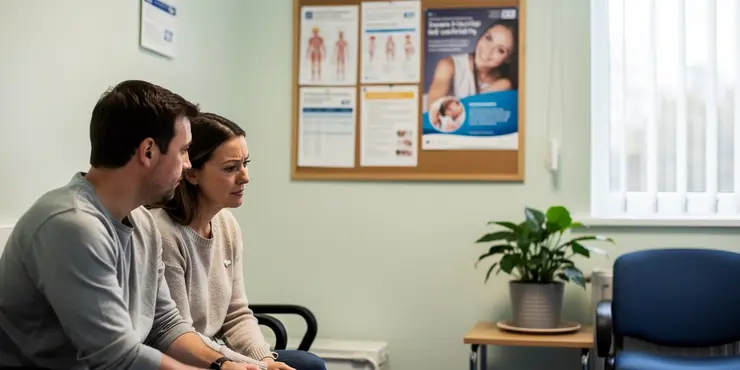
What is IVF?
Relevance: 67%
-

Does IVF guarantee pregnancy?
Relevance: 65%
-
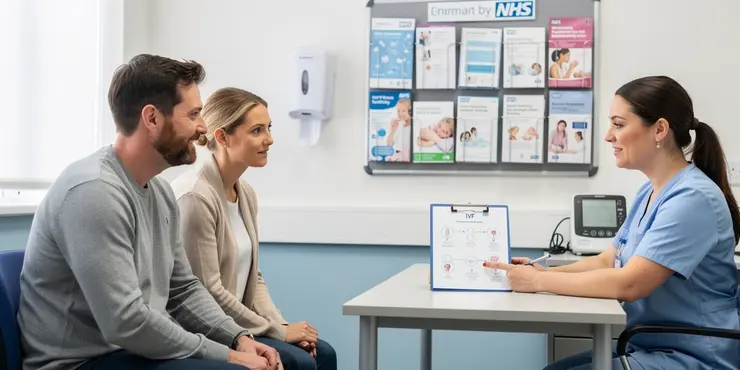
How does IVF work?
Relevance: 62%
-

IVF Fertility Treatment from MumsNet
Relevance: 61%
-
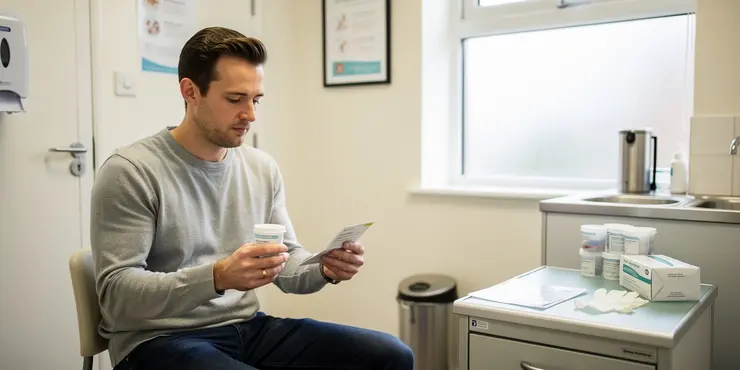
How is the sperm used in IVF?
Relevance: 60%
-

What is IVF and how does it work?
Relevance: 59%
-

Infertility - IVF Treatment and Patient Information
Relevance: 59%
-
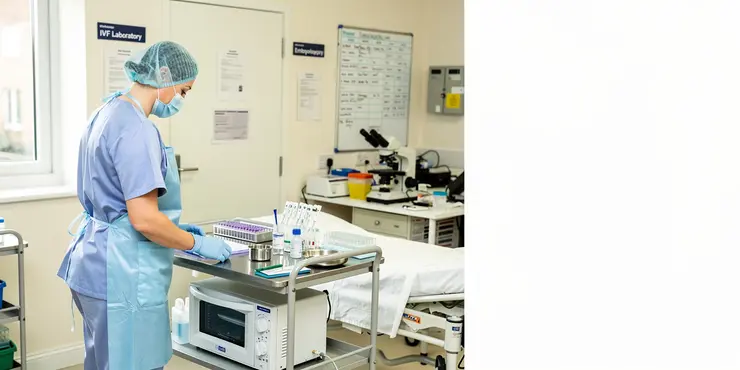
What is the role of the embryologist in IVF?
Relevance: 59%
-

Are there risks associated with IVF?
Relevance: 59%
-

What are the main steps in an IVF cycle?
Relevance: 57%
-

What should I expect during IVF treatment?
Relevance: 56%
-

Who might need IVF?
Relevance: 56%
-

How do clinics determine if IVF is the right option?
Relevance: 55%
-

How many embryos are usually transferred in IVF?
Relevance: 55%
-
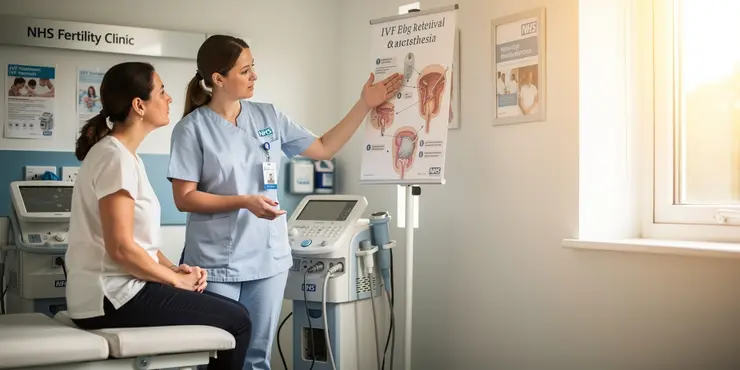
Does IVF require anesthesia?
Relevance: 54%
-
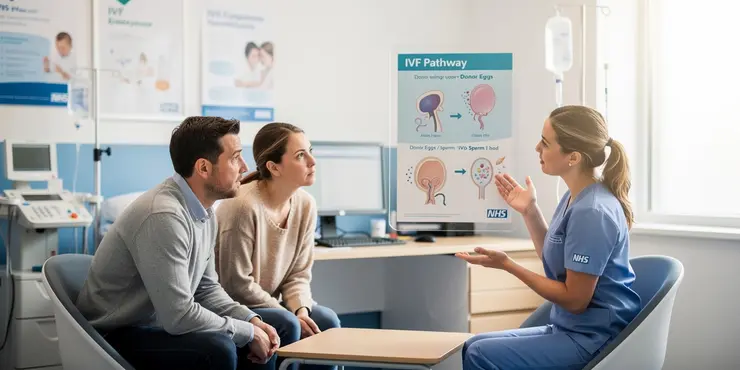
Can IVF be done with donor eggs or sperm?
Relevance: 53%
-

How are embryos transferred during IVF?
Relevance: 53%
-
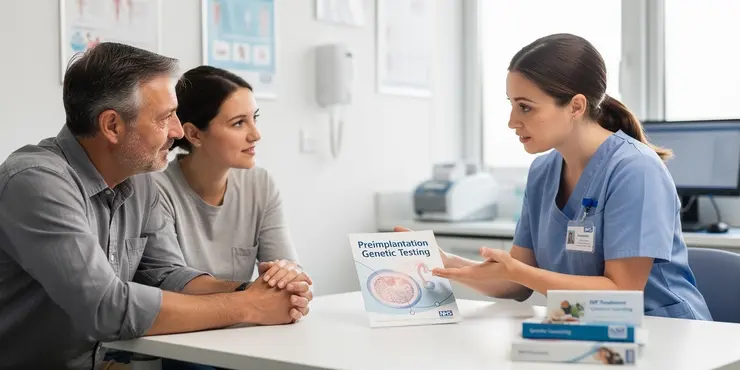
Can IVF be used for gender selection?
Relevance: 53%
-
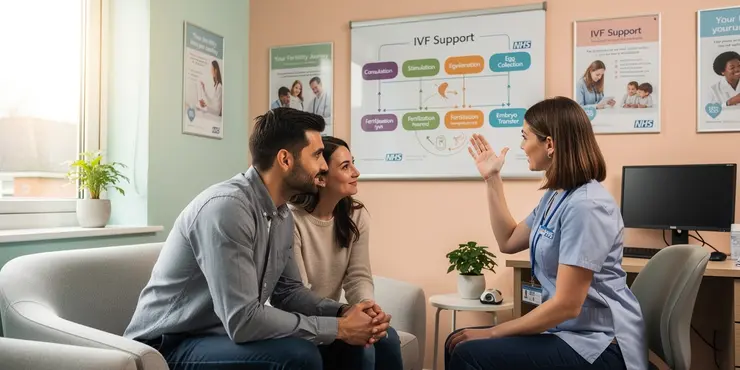
How long does an IVF cycle take?
Relevance: 46%
-

What are the success rates of Paillon treatment?
Relevance: 38%
-
How is the success of the social media ban measured?
Relevance: 35%
-
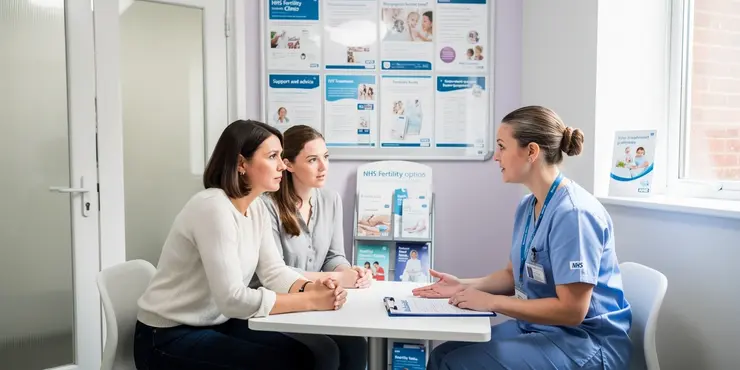
Fertility treatments on the up, but not via the NHS
Relevance: 30%
-
Has the social media ban for children in Australia been a success ?
Relevance: 29%
-

Female infertility explained
Relevance: 23%
-
Has the social media ban been successful in improving children's mental health?
Relevance: 19%
-

How to apply for NHS funding to treat infertility
Relevance: 16%
-
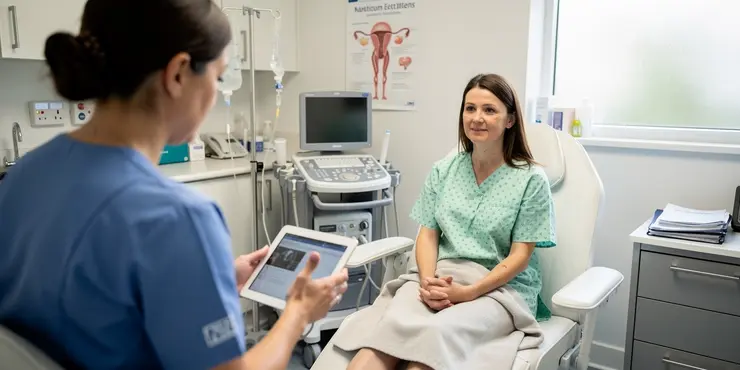
What is egg retrieval?
Relevance: 16%
-
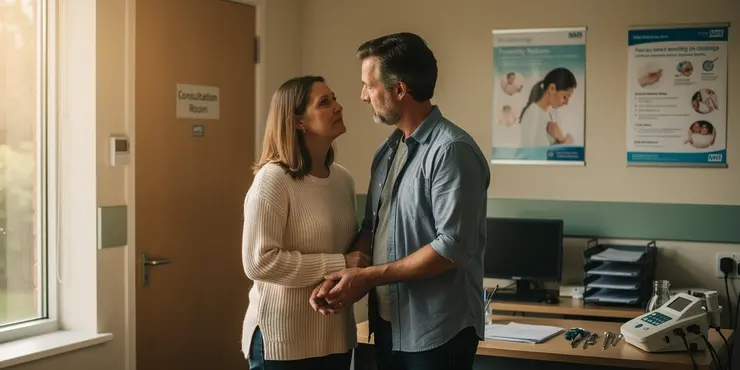
What happens to unused embryos?
Relevance: 15%
-

Can I have a natural birth after a Caesarean section?
Relevance: 10%
-

Is it safe for a partner of someone with HIV to have children?
Relevance: 10%
-
Can an indefinite prison sentence be appealed?
Relevance: 10%
-
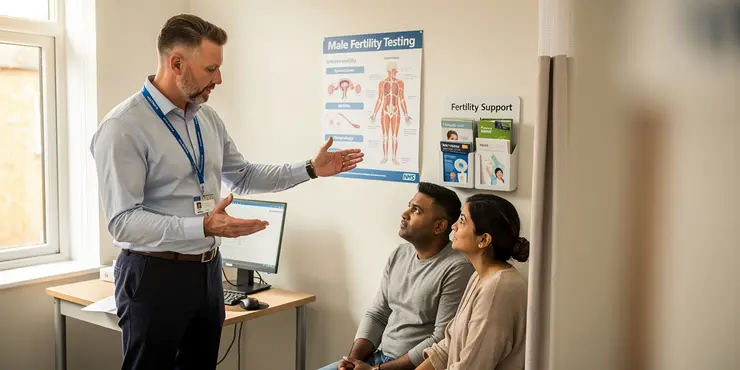
Ian Stones - Test him - Male Infertility
Relevance: 10%
-
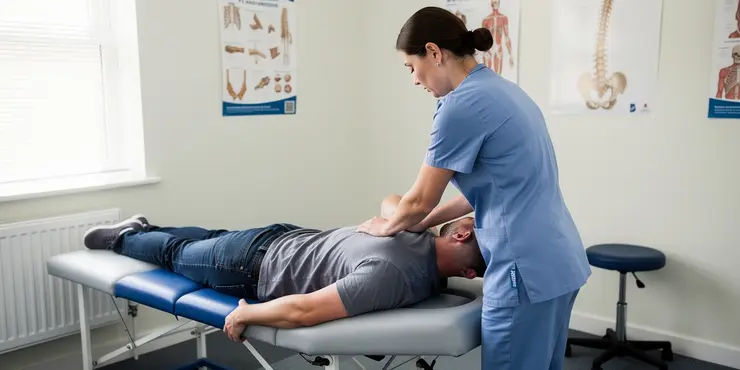
What is the popping sound during a chiropractic adjustment?
Relevance: 9%
-
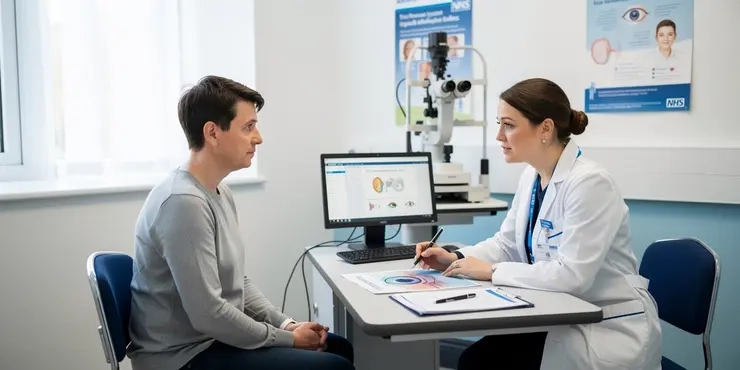
Cornea transplant patient Information
Relevance: 9%
-
Cornea transplant - Your journey
Relevance: 9%
-

Having a kidney transplant
Relevance: 9%
-

What is loan rehabilitation?
Relevance: 9%
-
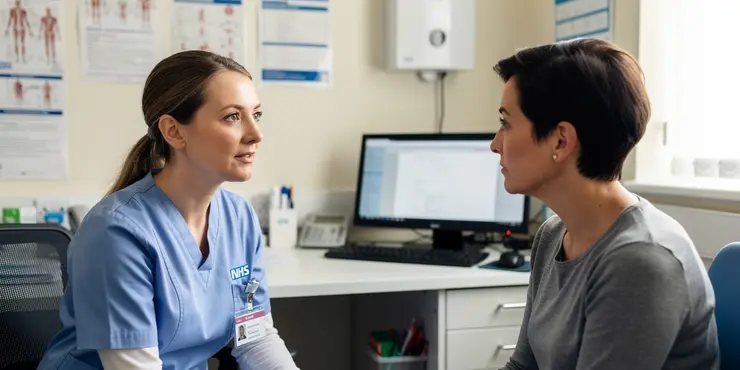
What are diversion programs for drug offenders?
Relevance: 9%
-

Patient Stories - Having a kidney transplant
Relevance: 8%
Introduction to IVF
In vitro fertilization (IVF) is a widely recognized assisted reproductive technology that involves the fertilization of an egg outside the body. It is often considered by couples experiencing infertility issues and is one of the more successful techniques available today. However, success rates can vary based on numerous factors.
Factors Influencing IVF Success Rates
There are several key factors that influence the success rates of IVF procedures. Age is one of the most significant factors; younger women typically have higher success rates. According to data from the Human Fertilisation and Embryology Authority (HFEA) in the UK, the live birth rate for women under 35 using IVF is approximately 29%, while the rate drops to about 23% for those aged 35 to 37, and even lower for older women.
Other influential factors include the cause of infertility, the quality of the embryos, the clinic's expertise, and lifestyle choices such as smoking and body weight. The use of donor eggs can also improve success rates, especially for older women.
Understanding Success Rates
The success of IVF is often measured in terms of pregnancy rather than live birth rates, which can sometimes be misleading. Clinical pregnancy rates may be higher, but they don't always result in live births. It's crucial to understand that multiple cycles may be necessary to achieve a successful pregnancy. The cumulative success rate increases with additional IVF cycles.
As per NHS guidelines, a woman under 40 may be eligible for up to three cycles of IVF, while women aged 40 to 42 might access one cycle if certain conditions are met. Success rates may be reported per cycle commenced, per egg collection, or per embryo transfer, and it's important to clarify this when comparing clinics.
Emotional and Financial Considerations
While IVF can offer hope to many couples, it is not without emotional and financial implications. The process can be emotionally taxing, particularly if multiple cycles are needed. Couples may experience stress, anxiety, and depression during treatment, making support from counseling services advisable.
Financially, IVF can be costly. While some may receive NHS funding for IVF treatment, others may need to consider private options. It's essential to understand these costs and explore what is included in the quotes received from clinics.
Conclusion
IVF has a reasonable success rate, particularly for younger women and when multiple cycles are considered. However, it is a complex and demanding process with various influencing factors that couples need to be aware of. In the UK, understanding the factors affecting success rates and making informed decisions with professional guidance can increase the chances of a successful outcome. Couples considering IVF should seek detailed advice and support from medical professionals to fully understand their options and the likelihood of success.
Introduction to IVF
IVF stands for in vitro fertilization. It is a way to help people have a baby when they have trouble getting pregnant. IVF involves taking an egg and fertilizing it with sperm outside the body. Couples who cannot have a baby naturally often try IVF. It is a successful method, but it doesn't always work.
Factors Influencing IVF Success Rates
Many things affect how well IVF works. One of the most important things is the age of the woman. Younger women often have a better chance of having a baby with IVF. In the UK, if a woman is under 35, her chance of having a baby with IVF is about 29%. If she is between 35 and 37, the chance is about 23%. Older women have lower chances.
Other things that affect IVF success include the reason for infertility, the quality of the embryos, how good the clinic is, and things like smoking and body weight. Using donor eggs can help older women have better chances.
Understanding Success Rates
When talking about IVF success, it is important to look at live births, not just pregnancies. Sometimes a pregnancy does not lead to a birth. It might take more than one try to have a baby with IVF. The more IVF cycles a woman has, the better her chances.
In the UK, some women under 40 can try IVF up to three times with NHS help. Women between 40 and 42 might get one try if they meet certain rules. When looking for a clinic, ask if the success rates are based on each try, each egg collected, or each embryo placed in the womb.
Emotional and Financial Considerations
IVF can give hope to many people, but it can also be very hard emotionally and cost a lot of money. Going through IVF can be stressful, especially if it takes a few tries. People might feel anxious or sad. Getting support from a counselor can help.
IVF is also expensive. Some people might get help from the NHS, but others might have to pay on their own. It is important to know the costs and what is included when getting prices from clinics.
Conclusion
IVF can work well, especially for younger women and when they have more than one try. But it is a difficult process, and many things can affect whether it will work. In the UK, couples should learn about what affects success and make careful choices with advice from doctors. Couples thinking about IVF should talk to medical experts to understand their chances and options.
Frequently Asked Questions
What is IVF?
IVF, or in vitro fertilization, is a type of assisted reproductive technology used to help individuals or couples conceive a child. It involves retrieving eggs from a woman's ovaries and fertilizing them with sperm in a laboratory.
How successful is IVF on the first try?
IVF success rates depend on several factors, including the woman's age and the cause of infertility. On average, the success rate for IVF on the first try is about 30% to 40% for women under 35, and it decreases with age.
What are the factors that affect IVF success?
Factors affecting IVF success include the woman's age, the quality of the eggs and sperm, infertility diagnosis, the clinic's expertise, lifestyle factors, and the number of embryos transferred.
How many IVF cycles are typically needed?
It varies widely; some individuals or couples may succeed with one cycle, while others may need multiple attempts. On average, it may take up to three cycles to achieve a successful pregnancy.
Does the age of the woman affect IVF success rates?
Yes, age significantly affects IVF success rates. Younger women generally have higher success rates compared to older women, as egg quality and quantity decrease with age.
What is the average success rate of IVF?
The average success rate of IVF is about 30% to 40% per cycle for women under 35, and it decreases with age.
Are there different types of IVF procedures?
Yes, there are variations of IVF procedures, including traditional IVF, ICSI (intracytoplasmic sperm injection), and natural cycle IVF, among others.
Can lifestyle changes improve IVF success rates?
Yes, maintaining a healthy weight, quitting smoking, reducing alcohol and caffeine intake, and managing stress can improve IVF success rates.
Is IVF successful for unexplained infertility?
IVF can be successful for individuals with unexplained infertility, as it bypasses some of the potential barriers to conception.
How does embryo quality affect IVF success?
Higher-quality embryos have a better chance of implanting in the uterus and resulting in a successful pregnancy, which is why embryo grading is part of the IVF process.
Does the clinic chosen affect IVF success rates?
Yes, the experience and expertise of a clinic's staff can impact IVF success rates. It's important to choose a reputable clinic with good success statistics.
What are common causes of IVF failure?
Common causes of IVF failure include poor egg quality, poor sperm quality, embryo implantation failure, and issues with the uterus or endometrial lining.
Are there risks associated with IVF?
Yes, there are risks such as multiple pregnancies, ovarian hyperstimulation syndrome, and potential surgical complications during egg retrieval.
Can men’s age affect IVF success rates?
Yes, while women’s age plays a larger role, the age and health of the male partner can also affect IVF success due to potential impacts on sperm quality.
Does stress affect IVF outcomes?
While evidence is mixed, high stress levels can potentially affect IVF outcomes. Stress management is often recommended for individuals undergoing IVF.
What is the role of genetic testing in IVF?
Genetic testing in IVF, such as PGS or PGD, can help identify embryos with the correct number of chromosomes or specific genetic conditions, potentially improving success rates.
How is success measured in IVF?
Success in IVF is usually measured by pregnancy rates per cycle, live birth rates, and the overall experience of individuals going through the process.
How long does an IVF cycle take?
An IVF cycle typically takes about 4 to 6 weeks from the start of medication to egg retrieval and embryo transfer.
What happens if IVF fails?
If IVF fails, doctors may adjust the treatment plan or suggest alternative procedures. It’s also important for the individual or couple to seek emotional support.
Can IVF be used for single women or same-sex couples?
Yes, IVF can be used by single women, same-sex couples, or anyone needing assistance to conceive, often with donor sperm or eggs.
What is IVF?
IVF stands for In Vitro Fertilization. It is a way to help people have a baby.
Doctors take a woman's egg and a man's sperm. They put them together outside the body to make an embryo. Then, they put the embryo back into the woman's body to grow into a baby.
If you find it hard to read, you can ask someone to help you. You can also use tools that read the words out loud.
IVF helps people have a baby. It is a special medical treatment. Doctors take eggs from a woman's body. They mix the eggs with sperm in a lab to make them grow into a baby.
How well does IVF work the first time?
IVF, or In Vitro Fertilization, is a way to help people have babies. But it doesn't always work right away.
Many things can affect if IVF works, like age and health.
Sometimes IVF does work the first time, but not always.
If you're trying IVF, stay hopeful and talk to your doctor for good advice.
Using tools like pictures or charts can help you understand better.
How well IVF works can depend on a few things. These things include how old the woman is and why she can't have a baby. For women under 35, IVF works about 30% to 40% of the time on the first try. The chances go down as women get older.
What things can change how well IVF works?
IVF success can depend on different things. These things include:
- How old the woman is.
- How good the eggs and sperm are.
- Why the couple has trouble having a baby.
- How good the clinic is at IVF.
- What the woman's lifestyle is like (for example, if she smokes).
- How many embryos the doctor puts in the woman's body.
Using clear pictures or videos can help understand better. Talking to a doctor about questions and worries is also a good idea.
How many times do people usually try IVF?
People try to have babies in different ways. Some people or couples might have a baby after trying once. Others might need to try a few times. Usually, it might take up to three tries to have a baby.
For help, you can use apps to track your cycles or visit a doctor for advice.
Does a woman's age change how well IVF works?
Yes, age is very important for IVF to work. Younger women usually have more success than older women. This is because younger women have more healthy eggs.
How often does IVF work?
When women under 35 years old try to have a baby using IVF, it works 30 to 40 times out of 100 tries. It is harder to get pregnant as women get older.
Are there different types of IVF procedures?
Yes, there are different ways to do IVF. IVF stands for In Vitro Fertilization. It helps people have babies.
Here are some types:
- Traditional IVF: Eggs and sperm meet in a lab to make an embryo.
- ICSI: A doctor puts one sperm into an egg to help it grow.
- Donor Eggs: Some people use eggs from another woman.
- Frozen Embryo Transfer (FET): An embryo is frozen to use later.
If you're interested in IVF, talk to a doctor. They can help you understand which is best for you.
If you find it hard to read, ask someone to read with you. Using pictures can help too.
Yes, there are different types of IVF treatments. These include:
- Traditional IVF
- ICSI (where one sperm is put inside an egg)
- Natural cycle IVF
Each type is a bit different!
Helpful tools:
- Use pictures or videos to understand better.
- Ask a helper or friend to talk about it with you.
Can changing how you live help IVF work better?
Yes, there are some things you can do to help IVF work better.
You can keep a healthy weight, stop smoking, drink less alcohol and caffeine, and try to stay calm and happy.
These things can make it more likely for IVF to work.
Does IVF help when doctors don't know why someone can't have a baby?
IVF can help people who don't know why they can't have a baby. It works around some things that might stop them from getting pregnant.
How does the quality of the embryo affect the success of IVF?
When people want to have a baby using IVF, doctors look at the embryo. The embryo is the tiny baby starting to grow. If the embryo is healthy and strong, it can help people have a better chance of having a baby. If the embryo is not as strong, it might be harder.
Doctors check to make sure the embryo is growing well before they use it. This is important to help the IVF process work better.
Here are some tips and tools:
- Ask your doctor lots of questions. They can help you understand.
- A support group can help you feel better and learn more.
- Use pictures or stories to help you understand IVF better.
Good embryos help you get pregnant. They stick well in the uterus. That is why doctors check embryo quality during IVF.
Does the clinic make a difference in IVF success?
Does it matter which clinic you pick for IVF? Can it change how well it works?
IVF: This stands for In Vitro Fertilization. It is a way to help people have babies.
Clinic: A place where doctors help people with IVF.
Some clinics might be better than others at helping people have babies with IVF.
Tips to help understand:
- Ask someone you trust to read with you.
- Use pictures or videos to learn more about IVF and clinics.
- Write down words you don’t know and ask someone what they mean.
Yes, the staff's skills at a clinic can help with IVF success. Pick a clinic with a good reputation and good success numbers.
Why does IVF sometimes not work?
IVF might not work because of a few reasons. Some reasons are:
- Eggs are not very good.
- Sperm is not very good.
- Embryo does not stick in the womb.
- Problems with the womb.
To help understand better, you can:
- Use pictures or videos.
- Ask someone to explain it to you.
- Use apps that make reading easier.
Is IVF Safe?
Yes, there are some risks.
You might have more than one baby at a time (like twins).
Your ovaries might get very big and hurt.
There could be problems when doctors take the eggs out.
If you're worried, talk to your doctor. They can help and give you advice.
Using pictures and videos can help you understand better.
Does a man's age change IVF success?
Yes, a woman's age is important, but the man's age and health matter too. This is because they can affect how good the sperm is during IVF.
Here are some tools and techniques to help understand:
- Speak to a doctor to learn more about IVF.
- Use simple words when talking about these topics.
- Look at pictures or videos that explain how IVF works.
- Ask questions if something is hard to understand.
Does stress make IVF work less well?
Feeling very stressed might change how IVF works, but we are not completely sure. It can be a good idea to try to stay calm and relaxed when you are having IVF.
What does genetic testing do in IVF?
Genetic testing in IVF can help find healthy embryos. This means checking embryos for the right number of chromosomes or special gene problems. This can make having a healthy baby more likely.
How do we know if IVF works?
When people try IVF, they see if it works by checking a few things. They look at how many people get pregnant each time they try. They also count how many babies are born. Plus, they see how happy people are with the whole process.
How long does IVF take?
IVF usually takes around 4 to 6 weeks. This can be about 1 to 2 months.
If you need help understanding this, you can:
- Break down the weeks into days for a clearer view.
- Use a calendar to mark each step.
- Ask someone to explain the steps to you.
IVF means having a baby with doctor's help. It involves many steps, so it's good to keep track.
An IVF cycle usually lasts 4 to 6 weeks. It starts when you begin taking medicine and ends when the doctors take out the eggs and put the embryo back.
What happens if IVF doesn't work?
Sometimes, IVF doesn't work the first time. This can feel upsetting. It's important to know there are other things you can try.
Here are some things that can help:
- Talk to your doctor: They can tell you what to do next.
- Ask for support: Friends and family can help you feel better.
- Try again: Many people try IVF more than once.
- Read books or watch videos: They can help you understand more.
If IVF doesn’t work, doctors might change the treatment or suggest other options. It’s also important for the person or couple to find support for their feelings.
Can a single woman or a same-sex couple use IVF to have a baby?
Yes, a single woman or a same-sex couple can use IVF to have a baby.
IVF means in vitro fertilization. It is a way to make a baby by joining an egg and sperm outside the body.
If you want to know more or need help, you can talk to a doctor. They can give you advice and information.
Yes, single women, same-sex couples, or anyone who needs help to have a baby can use IVF. They might use sperm or eggs from a donor.
Useful Links
This website offers general information and is not a substitute for professional advice.
Always seek guidance from qualified professionals.
If you have any medical concerns or need urgent help, contact a healthcare professional or emergency services immediately.
Some of this content was generated with AI assistance. We’ve done our best to keep it accurate, helpful, and human-friendly.
- Ergsy carfully checks the information in the videos we provide here.
- Videos shown by Youtube after a video has completed, have NOT been reviewed by ERGSY.
- To view, click the arrow in centre of video.
- Most of the videos you find here will have subtitles and/or closed captions available.
- You may need to turn these on, and choose your preferred language.
- Go to the video you'd like to watch.
- If closed captions (CC) are available, settings will be visible on the bottom right of the video player.
- To turn on Captions, click settings .
- To turn off Captions, click settings again.
More Items From Ergsy search
-

Is IVF successful?
Relevance: 100%
-

What is IVF?
Relevance: 67%
-

Does IVF guarantee pregnancy?
Relevance: 65%
-

How does IVF work?
Relevance: 62%
-

IVF Fertility Treatment from MumsNet
Relevance: 61%
-

How is the sperm used in IVF?
Relevance: 60%
-

What is IVF and how does it work?
Relevance: 59%
-

Infertility - IVF Treatment and Patient Information
Relevance: 59%
-

What is the role of the embryologist in IVF?
Relevance: 59%
-

Are there risks associated with IVF?
Relevance: 59%
-

What are the main steps in an IVF cycle?
Relevance: 57%
-

What should I expect during IVF treatment?
Relevance: 56%
-

Who might need IVF?
Relevance: 56%
-

How do clinics determine if IVF is the right option?
Relevance: 55%
-

How many embryos are usually transferred in IVF?
Relevance: 55%
-

Does IVF require anesthesia?
Relevance: 54%
-

Can IVF be done with donor eggs or sperm?
Relevance: 53%
-

How are embryos transferred during IVF?
Relevance: 53%
-

Can IVF be used for gender selection?
Relevance: 53%
-

How long does an IVF cycle take?
Relevance: 46%
-

What are the success rates of Paillon treatment?
Relevance: 38%
-
How is the success of the social media ban measured?
Relevance: 35%
-

Fertility treatments on the up, but not via the NHS
Relevance: 30%
-
Has the social media ban for children in Australia been a success ?
Relevance: 29%
-

Female infertility explained
Relevance: 23%
-
Has the social media ban been successful in improving children's mental health?
Relevance: 19%
-

How to apply for NHS funding to treat infertility
Relevance: 16%
-

What is egg retrieval?
Relevance: 16%
-

What happens to unused embryos?
Relevance: 15%
-

Can I have a natural birth after a Caesarean section?
Relevance: 10%
-

Is it safe for a partner of someone with HIV to have children?
Relevance: 10%
-
Can an indefinite prison sentence be appealed?
Relevance: 10%
-

Ian Stones - Test him - Male Infertility
Relevance: 10%
-

What is the popping sound during a chiropractic adjustment?
Relevance: 9%
-

Cornea transplant patient Information
Relevance: 9%
-
Cornea transplant - Your journey
Relevance: 9%
-

Having a kidney transplant
Relevance: 9%
-

What is loan rehabilitation?
Relevance: 9%
-

What are diversion programs for drug offenders?
Relevance: 9%
-

Patient Stories - Having a kidney transplant
Relevance: 8%


